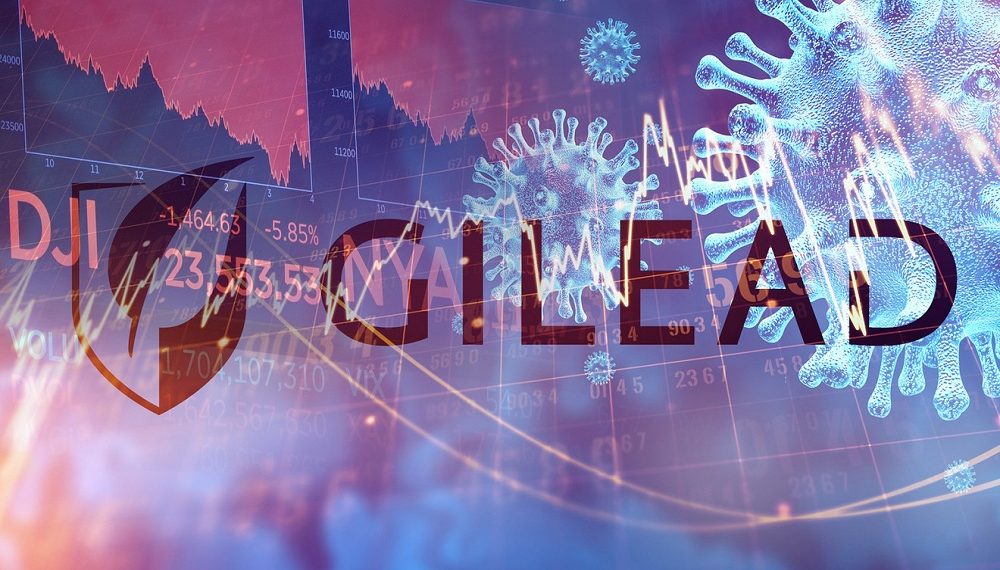In the largest deal in its 33-year history, Gilead Sciences has agreed to pay $21 billion to acquire Immunomedics and its recently-approved antibody-drug conjugate (ADC), Trodelvy. Separately, Merck & Co. said it will take a major stake in Seattle Genetics as part of a broad pact that gives Merck access to an ADC in development to treat breast cancer.
Immunomedics has a full pipeline of antibodies and ADCs, but the clear target for Gilead was Trodelvy, which the US Food and Drug Administration approved in April to treat triple-negative breast cancer. The drug generated $20 million in its first full quarter on the market, and stock analysts project annual sales of $4 billion by 2029. On a call with investors, Gilead CEO Daniel O’Day called the drug “a pipeline in a product,” thanks to the potential to expand its use to other cancers and to combine it with other oncology drugs.
For Gilead, the deal accelerates a years-long plan to become competitive in the oncology drug market. The firm took the first step in 2017 when it paid nearly $12 billion for cell therapy–focused Kite Pharma, a deal that catapulted it into the blood cancer arena. A year later, O’Day, a Roche executive with deep experience in marketing cancer drugs, was brought in to build a broader portfolio of oncology products.
In the past two years, the biotech firm has secured 12 oncology deals, O’Day noted on the call. Many of them—notably its recent $4.9 billion acquisition of Forty Seven—expanded Gilead’s pipeline of blood cancer drugs.
The field is maturing as people understand what it takes to make a good ADC. John Lambert, independent consultant The Immunomedics purchase is intended to give Gilead an anchor in solid-tumor therapies. “The shape of the portfolio changes really significantly with this acquisition,” O’Day said.
Investors have been waiting for Gilead to make a splashy deal. But while positive on the potential for Trodelvy, they are not fans of the hefty price. SVB Leerink stock analyst Geoffrey Porges told clients that it was “the most expensive large acquisition in the big pharma space in a decade,” noting thatGilead claims the price reflects multiple suitors for Immunomedics.
“This is the type of tangible deal Gilead needs to try and inject some much needed growth into its future outlook,” JPMorgan’s Cory Kasimov told investors. “That said, this doesn’t come cheap.”
Merck also put up big money for ADCs. Merck will pay Seattle Genetics $600 million and take a $1 billion stake in the firm to gain access to ladiratuzumab vedotin, which is in mid-stage clinical studies to treat breast cancer. A side pact allows Merck to sell an approved breast cancer drug called Tukysa in several regions outside of the US and Europe.
Merck plans to explore ladiratuzumab vedotin’s potential on its own and in combination with its own cancer immunotherapy, Keytruda.
Interest in ADCs has waxed and waned over the years, and the pair of deals—plus a sizable collaboration last year between AstraZeneca and Daiichi Sankyo—reflects recent work to improve their efficacy. The concept seems simple: tether powerful chemotherapy payloads to an antibody that homes in on a protein overexpressed on cancer cells. But companies have struggled to get those constructs right. Until last year, only 4 ADCs had reached the US market.
Since 2019, though, the FDA has approved 5 ADCs, and several others are in late-stage studies. The field’s mini-renaissance is largely due to advances in understanding cancer biology, new linker technologies, and a diversity in payloads, says John Lambert, who spent 30 years working on ADCs at ImmunoGen and is now an independent consultant.
Trodelvy, for example, uses a hydrolysable carbonate linker to connect an antibody targeting the surface glycoprotein Trop-2 to a topoisomerase inhibitor. That payload damages DNA, whereas earlier ADCs largely inhibited formation of microtubules in cells.
“The field is maturing as people understand what it takes to make a good ADC,” Lambert says.



















